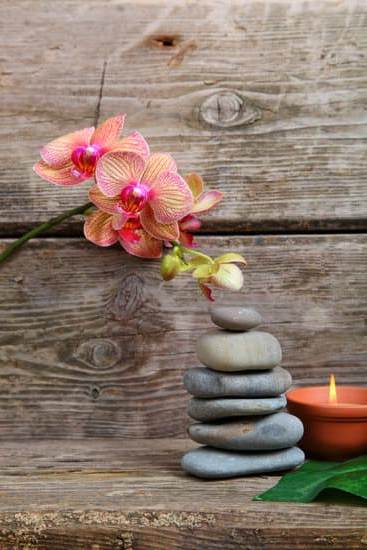Aromatherapy is a holistic healing treatment that uses essential oils to enhance physical and emotional well-being. The practice of aromatherapy involves inhaling the scent of these concentrated plant extracts or using them topically to promote relaxation, relieve stress, and improve various health conditions. But what can aromatherapy be used to treat? From stress relief to pain management, insomnia to skincare, aromatherapy offers a wide range of benefits for both the mind and body.
The history of aromatherapy dates back centuries, with ancient civilizations recognizing the power of essential oils for their therapeutic properties. Over time, this practice has evolved into modern uses that are backed by scientific research and studies. Understanding the basics of aromatherapy involves delving into the world of essential oils, which are the powerhouses behind this natural form of healing. Each essential oil has unique properties that offer specific benefits when used in aromatherapy practices.
Whether you are looking to alleviate stress, manage pain, improve sleep quality, enhance your mood, or boost respiratory health, aromatherapy provides a natural and effective solution. By incorporating essential oils into your daily routine through diffusers, massage oils, or bath products, you can experience the incredible benefits that aromatherapy has to offer. Stay tuned as we explore how aromatherapy can help you achieve a healthier and more balanced lifestyle in our subsequent sections.
History of Aromatherapy
Aromatherapy has a rich history that dates back thousands of years, with ancient civilizations harnessing the power of essential oils for various purposes. The use of aromatic plant extracts can be traced back to ancient Egypt, where they were utilized in religious ceremonies, burial rituals, and healing practices. The Egyptians were known to have employed essential oils such as frankincense and myrrh for their powerful fragrance and therapeutic properties.
In ancient India, the practice of Ayurveda also incorporated the use of essential oils for medicinal purposes, massage therapy, and spiritual rituals. Similarly, traditional Chinese medicine has a long history of using aromatic herbs in treatments to harmonize the body’s energy flow and promote overall well-being. Throughout history, different cultures have recognized the benefits of aromatherapy for physical, emotional, and spiritual health.
Today, aromatherapy continues to evolve as a complementary therapy in modern healthcare practices. With scientific research backing its effectiveness, essential oils are now widely used in various settings such as hospitals, spas, wellness centers, and homes. From stress relief and pain management to skincare and respiratory health, aromatherapy offers natural solutions to promote holistic well-being.
So, what can aromatherapy be used to treat? Aromatherapy can be utilized to address a wide range of conditions and concerns by harnessing the therapeutic properties of essential oils.
Understanding Essential Oils
Aromatherapy utilizes essential oils, which are the key components that make this practice effective. Essential oils are concentrated extracts derived from plants, flowers, herbs, and trees through various methods like distillation or cold-pressing. These oils are known for their potent aroma and therapeutic properties that can benefit physical, emotional, and mental well-being. Each essential oil carries unique chemical compounds that determine its scent and potential health benefits.
One of the most common uses of essential oils in aromatherapy is for stress relief. Oils like lavender, chamomile, and bergamot are popular choices for their calming effects on the mind and body. Inhaling these soothing scents can help reduce feelings of anxiety, promote relaxation, and improve overall mood.
Additionally, certain essential oils have analgesic properties that make them valuable for pain management. Oils such as peppermint, eucalyptus, and rosemary have been used for centuries to alleviate headaches, muscle soreness, and other types of discomfort.
Furthermore, essential oils play a significant role in skincare due to their antibacterial, anti-inflammatory, and antioxidant properties. When diluted properly with carrier oils or lotions, oils like tea tree, rosehip seed, and geranium can help treat acne-prone skin, reduce signs of aging, and improve overall complexion.
The versatility of essential oils makes them a valuable addition to various personal care products like cleansers, serums, and moisturizers. Overall, understanding the powerhouses behind aromatherapy – essential oils – sheds light on the wide range of ailments they can effectively address when used correctly.
| Essential Oil Use | Benefit |
|---|---|
| Stress Relief (lavender) | Promotes relaxation and reduces anxiety |
| Pain Management (peppermint) | Alleviates headaches and muscle soreness |
| Skin Care (tea tree) | Treats acne-prone skin and reduces signs of aging |
Aromatherapy for Stress Relief
Aromatherapy has long been recognized for its ability to help individuals relax, unwind, and de-stress. The use of essential oils in aromatherapy can have a powerful impact on both the mind and body, offering a natural and holistic approach to stress relief. By inhaling or applying specific essential oils, aromatherapy can help calm the nervous system, reduce anxiety levels, and promote overall relaxation.
Essential oils like lavender, chamomile, and frankincense are widely known for their calming properties and are often used in aromatherapy practices aimed at stress relief. These fragrant oils can be diffused in a room, added to bathwater, or applied topically with a carrier oil to experience their soothing effects. The act of inhaling these calming scents can signal the brain to relax and release tension, making aromatherapy an effective tool for managing everyday stressors.
In addition to its immediate soothing effects on the mind and body, aromatherapy for stress relief can also offer long-term benefits by promoting better sleep quality, reducing muscle tension, and improving overall emotional well-being. With regular use of aromatherapy techniques tailored specifically for stress relief, individuals can create a peaceful environment that supports relaxation and mental clarity.
Whether you are dealing with work-related stress, personal challenges, or simply looking to unwind after a long day, incorporating aromatherapy into your self-care routine can provide much-needed relief from life’s pressures while enhancing your overall sense of well-being.
Aromatherapy for Pain Management
Aromatherapy has been used for centuries as a natural remedy for managing various types of pain. Essential oils, derived from plants, are known for their therapeutic properties that can help reduce discomfort and promote healing. Whether you are dealing with muscle soreness, headaches, or chronic pain conditions, aromatherapy offers a holistic approach to pain management without the side effects of conventional medications.
The Science Behind Aromatherapy for Pain Relief
Essential oils used in aromatherapy work by interacting with the limbic system in the brain, which is responsible for regulating emotions and pain perception. When inhaled or applied topically, certain essential oils have analgesic, anti-inflammatory, and muscle relaxant effects that can alleviate different types of pain.
For example, peppermint oil contains menthol, which has cooling properties that can help relieve tension headaches and muscle aches. Lavender oil is known for its calming scent that can reduce stress-related pain and promote relaxation.
Common Essential Oils for Pain Management
There are several essential oils commonly used in aromatherapy for managing pain. Eucalyptus oil is often used to relieve respiratory issues like sinus congestion and coughing that may cause discomfort. Frankincense oil is valued for its anti-inflammatory properties and can be beneficial for arthritis or joint pain.
Additionally, marjoram oil is known for its muscle relaxing effects and can help ease tension in sore muscles. By incorporating these essential oils into massage oils, bath soaks, or diffusers, individuals can experience relief from various sources of pain naturally.
Using Aromatherapy Safely for Pain Relief
It is essential to use aromatherapy safely when seeking relief from aches and pains. Diluting essential oils with carrier oils before applying them to the skin can prevent irritation or sensitization reactions. Additionally, conducting a patch test before widespread application is recommended to check for any allergic reactions.
Always follow guidelines on proper dosages and methods of application when using essential oils for pain management. Consulting with a qualified aromatherapist or healthcare provider can provide guidance on selecting the best essential oils and techniques based on individual needs.
Aromatherapy for Better Sleep
Aromatherapy has been used for centuries as a natural remedy to promote better sleep and improve overall sleep quality. By harnessing the power of essential oils, individuals can create a relaxing environment that can help calm the mind and body before bedtime. Whether through diffusing oils, creating DIY pillows sprays, or adding a few drops to a warm bath, aromatherapy offers a holistic approach to addressing sleep issues.
Benefits of Aromatherapy for Sleep
Aromatherapy is known for its ability to reduce stress and anxiety levels, which are common contributors to sleep disturbances. Certain essential oils, such as lavender, chamomile, and bergamot, have sedative properties that can help induce feelings of relaxation and tranquility. By creating a bedtime routine that includes aromatherapy, individuals may experience an improvement in their sleep patterns and overall well-being.
How to Incorporate Aromatherapy Into Your Bedtime Routine
There are various ways to incorporate aromatherapy into your bedtime routine to promote better sleep. Diffusing lavender or roman chamomile essential oils in your bedroom before going to bed can create a calming atmosphere conducive to restful sleep.
Alternatively, you can mix a few drops of cedarwood or sandalwood oil with a carrier oil like coconut or jojoba oil and massage it onto your wrists or neck for a soothing effect. Experimenting with different essential oils and finding what works best for you can help enhance the quality of your sleep.
Aromatherapy for Skin Care
Aromatherapy has long been known for its benefits beyond just relaxation and stress relief. In the realm of skin care, essential oils are powerhouse ingredients that can work wonders on improving the health and appearance of your skin. From hydrating dry skin to soothing irritation, aromatherapy offers a natural and holistic approach to skincare that is gentle yet effective.
Here are some common skin concerns that aromatherapy can help address:
- Acne: Tea tree oil is known for its antibacterial properties, making it a popular choice for fighting acne-causing bacteria.
- Dry Skin: Lavender oil is not only calming but also moisturizing, making it great for hydrating dry skin.
- Aging Skin: Frankincense is believed to have anti-aging properties that can help reduce the appearance of fine lines and wrinkles.
When used correctly and in conjunction with a proper skincare routine, aromatherapy can be a valuable tool in your quest for healthy, glowing skin. Whether you choose to use essential oils in a homemade facial oil blend or add a few drops to your favorite moisturizer, incorporating aromatherapy into your skincare regimen can provide both physical and mental benefits.
In addition to addressing specific skin concerns, aromatherapy can also promote relaxation and reduce stress, which can have a positive impact on your overall skin health. By harnessing the power of essential oils in your skincare routine, you can not only enhance your beauty but also nourish your mind and body in the process.
Aromatherapy for Respiratory Health
Aromatherapy has been used for centuries to promote overall well-being and provide relief for various health concerns. When it comes to respiratory health, aromatherapy can offer soothing solutions for breathing issues. By harnessing the power of essential oils, individuals can experience improved respiratory function and find relief from common ailments such as congestion, coughing, and allergies.
One of the most popular essential oils for respiratory health is eucalyptus oil. Eucalyptus has natural decongestant properties that can help clear nasal passages and ease breathing difficulties. When diffused or applied topically (properly diluted), eucalyptus oil can provide relief from symptoms of colds, flu, and sinus infections. Other beneficial essential oils for respiratory health include peppermint, tea tree, and lavender.
To incorporate aromatherapy into your respiratory health routine, consider using a diffuser to disperse essential oils throughout the air in your living space. You can also create homemade chest rubs or steam inhalation treatments using a few drops of essential oil in hot water.
Always remember to consult with a healthcare professional before using aromatherapy as a treatment for any specific respiratory condition, especially if you are already on prescribed medications or have existing health concerns. With proper guidance, aromatherapy can be a safe and effective complementary approach to supporting respiratory health.
Aromatherapy for Mood Enhancement
Aromatherapy is a versatile and holistic approach to health and wellness that has been used for centuries to improve various aspects of well-being. From stress relief to pain management, better sleep, skin care, respiratory health, and mood enhancement, aromatherapy offers a wide range of benefits through the use of essential oils.
When it comes to enhancing one’s mood, aromatherapy can be a valuable tool in promoting positive emotions and elevating spirits. The power of scents can have a direct impact on our emotions and mental state. By incorporating uplifting essential oils such as lavender, citrus, peppermint, or rosemary into your daily routine, you can create a calming and soothing atmosphere that fosters positivity and emotional balance.
Whether you are feeling down, anxious, or simply in need of a mood boost, aromatherapy for mood enhancement can help you find emotional equilibrium. By harnessing the natural properties of essential oils through diffusers, massage oils, inhalers, or bath products, you can create a sensory experience that uplifts your spirit and encourages a sense of overall well-being.
So next time you’re looking to elevate your emotions and enhance your mood naturally, consider turning to the power of aromatherapy for support in achieving emotional harmony.
Frequently Asked Questions
What Conditions Can Aromatherapy Be Used For?
Aromatherapy can be used for a variety of conditions, including stress, anxiety, insomnia, headaches, and even certain physical ailments like muscle aches or digestive issues. The use of essential oils in aromatherapy is believed to promote relaxation and improve overall well-being.
What Is Aromatherapy Essential Oils Treatment?
Aromatherapy essential oils treatment involves using natural plant extracts to promote health and well-being. These essential oils are extracted from various parts of plants and are often inhaled or applied to the skin through massage or baths. The key is to harness the therapeutic properties of these oils to support physical, mental, and emotional health.
What Is a Treatment That Uses Essential Oils?
A treatment that uses essential oils is known as aromatherapy. This holistic healing approach aims to enhance both physical and psychological well-being through the use of aromatic plant extracts.
Essential oils can be used in different ways, such as inhalation, diffusion, topical application, or even ingesting in some cases. Each oil has its own unique properties and benefits that can target specific issues or simply promote relaxation and balance overall.

Are you looking for a natural way to improve your health and wellbeing?
If so, aromatherapy may be the answer for you.





